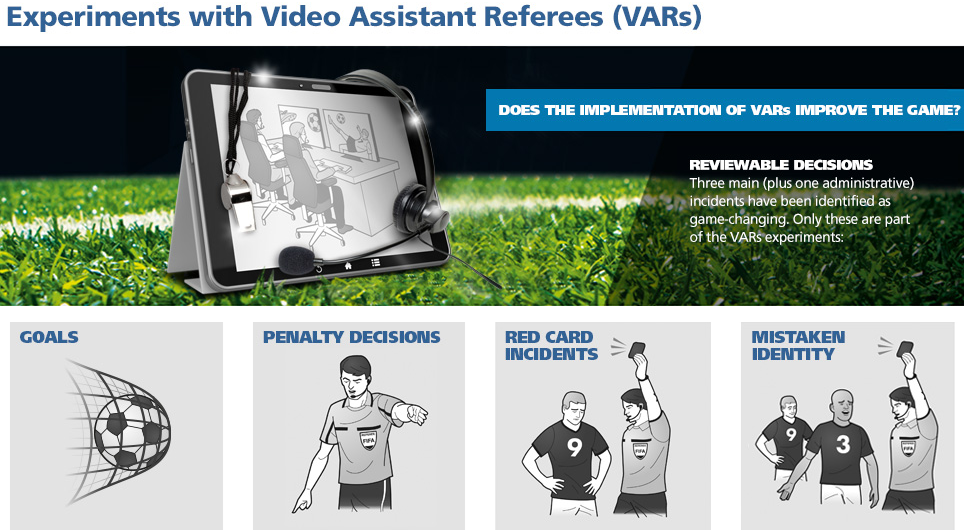August 15 – Trials of the video assistant referee system (VAR)has continued in the US with the third tier USL league, working in collaboration with Major League Soccer (MLS).
On Friday New York Red Bulls II, Orlando City B became the first professional competitive league match to use the technology live.
Seven countries will trial the technology with the a workshop conducted under the supervision of football’s rulemaking body, the International Football Association Board (IFAB) at the Red Bull Arena last month.
The Red Bulls II’s final five home games of the USL regular season will all trial the video review system with a focus on ensuring that communication between match officials and the Video Assistant Referee is clear. A key aim is reducing avoidable delays during the review process and interrupting the flow of the game.
“With our team having seen the system in operation throughout this testing phase, we are looking forward to seeing further VAR live experiments used in USL games,” said USL VP of Competition and Operations Perry Van Der Beck. “This is a groundbreaking moment for soccer as a whole, and we are proud to be part of it as we work alongside MLS and the IFAB on this project.”
The next Red Bulls II’s games to trial the technology are against Louisville City FC (August 19), FC Cincinnati (August 28), the Harrisburg City Islanders (September 7) and FC Montreal (September 17).
The video referee can only be called into play in four specific instances: if the ball has crossed the line to score a goal; whether a penalty decision is correct or not; to make sure no wrong decisions are made surrounding a sending off; to ensure there is no mistaken identity when the referee hands out a yellow or red card.
The video referee is not being trialled in one of the most contentious areas of the game, the offside rule. Nor are players allowed to issue a challenge that would bring the video referee into action.
About 20 leagues and associations are attending the workshop at the Red Bull Arena in July, with a view to getting involved in similar trials themselves over the next two years. The results of those trials will then go back to the IFAB board for a ruling on whether Video referees are sanctioned.
Contact the writer of this story at moc.l1744999095labto1744999095ofdlr1744999095owedi1744999095sni@n1744999095osloh1744999095cin.l1744999095uap1744999095

